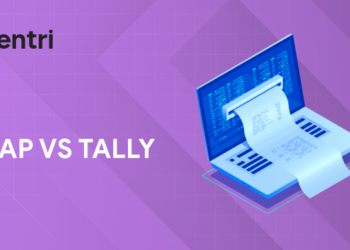The Indian President is the formal head of the nation. The president is mentioned as the governor of executive, legislature and the judiciary of the nation. He is appointed as Chief Commander of Indian Armed Force. The president is elected incidentally by an electoral college containing both houses of the Indian Parliament. Check out this article to have a detailed study on constitutional provisions of Indian President for competitive exams. where you can grasp easily.
Constitutional Provisions of Indian President for Competitive Exams 2025
Overall there are thirty sections of articles which have detailed clarification of different provisions on the president of India. Study the tabular data given below which will help you to obtain details on the Constitutional provisions of Indian President.
Subscribe Entri for Indian constitution study material
Part v of the constitution – The Union
Chapter 1: The Executive
| Article | Title | Constitutional Provisions of Indian President |
| Article 52 | The President of India | According to article 52, ‘There shall be a President of India’. |
| Article 53 | The Executive Power of The Union | According to article 53, The Executive Power of the Union shall be vested with the President and employed by him in line with the constitution directly or by officers subordinate to him. |
| Article 54 | Election of President |
According to article 54 it says that, The President must be elected by the members of an electoral college consisting of; · The elected members of both houses of parliament, and · The elected members of the Legislative Assemblies of the States. |
| Article 55 | Manner of Election of President |
According to article 55; There shall be uniformity in the scale of the different states at the election of President. The system of proportional representation by means of single transferable vote is carried out in the election of the President. For the purpose of obtaining such uniformity election shall be determined in this manner; ▪ Elected members of the Legislative Assembly of a state should have many votes as multiples of one thousand in the quotient obtained by dividing the state population by the total count of members elected in the assembly. ▪ The multiples of a thousand after taking the remainder should not be less than five hundred. The vote of each member in sub-clause (a) shall be further ascended by one. Each elected member of Parliament House shall have a number of votes as that gained by dividing the total number of votes allotted to the members of the Legislative Assemblies. |
| Article 56 | Term of Office of President |
According to article 56,
|
| Article 57 | Eligibility for Re-Election | According to article 57 it says, a person who holds or who has held, office as President shall, susceptible to the other provisions of this constitution be eligible for re-election to that office. |
| Article 58 | Qualifications for Election as President |
According article 58 it says all about qualifications The qualifications required to become president; ▪ He must be an Indian citizen. ▪ He must be thirty five plus. ▪ One must qualify for election as a member of the House of the People. The person will not be eligible, If he/she holds any profit under the government of India. |
| Article 59 | Conditions of Presidents Office |
According to article 59 the conditions are as follows;
|
| Article 60 | Oath or Affirmation by the President | According to article 60, oath or Affirmation by the President should be done in the presence of a valuable Chief Justice of India or in his absence the senior most Judge of the Supreme Court is made available. |
| Article 61 | Procedure for Impeachment of The President |
According to article 61;
|
| Article 62 | Time of Holding Election To Fill Vacancy In The Office of President And The Term of Office or Person Elected to Fill Casual V |
According to article 62;
|
| Article 72 | Power of President to Grant Pardons, etc., and to Suspend, Remit or Commute Sentences in Certain Cases | According to article 72 it says that, The President has the power to grant pardons, spare or remissions of punishment to expel, commute decree of any person’s offence. In every case where the retribution of decree is by a Court Martial, any crime against the law matters to which the executive power of the Union extends or in every case the punishment is a decree of death. |
| Article 75 | Other Provisions as to Ministers | According to article 75 it says that, The President has the complete power to allot the Prime Minister and other Ministers. |
| Article 76 | Attorney General for India | According to article 76 it says that, The President appoints a person who is qualified enough to allot a judge of the Supreme Court to be Attorney General of India. |
| Article 77 | Conduct of Business of the Government of India | According to article 77 it says that, Conduct of business of the Government of India in the name of the President. The President has the power to allocate business amid ministers. |
| Article 85 | Sessions of Parliament, Prorogation and Dissolution | According to article 85 it says that, From time to time The President may gather each House of Parliament for meetings. Also The President prorogues and dissolves Houses of the people. |
| Article 86 | Right of President to Address and Send Messages to Houses | According to article 86 it says that the president has the power to address and send messages to the house of parliament. |
| Article 87 | Special Address by the President | According to article 87 it says that, after each general election at the beginning of the first session, the President may address both houses of parliament assembled together. |
| Article 111 | Assent to Bills | According to article 111 it says that, when a bill is passed by the houses of parliament, it has to be presented to the president. He will proclaim whether the bill is accepted or refused. |
| Article 112 | Annual Financial Statement | According to article 112 it says about the power of the President related to Financial Statements. |
| Article 123 | Power of President to Promulgate Ordinances During Recess of Parliament | According to article 123 it says about the rights of the President to promulgate ordinances during recess of parliament. |
| Article 143 | Power of President to Consult Supreme Court | According to article 143 it says that the president has the power to address questions to the supreme court. |
| Article 352 | Proclamation of Emergency | According to article 352 it says that president has the right to proclaim national emergency on the basis of external war and internal disturbance |
| Article 356 | Provisions in Case of Failure of Constitutional Machinery States | According to article 356 it says that, the union government can take control of the state machinery in case where the state government is unable to work as per constitutional provisions. The president has the right to declare that the powers of the Legislature of the State shall be exercised by or under the authority of Parliament; |
| Article 360 | Provisions as to Final Emergency | According to article 360 it says that if the President is satisfied that a situation has arisen whereby the financial stability or credit of India or of any part of the territory thereof is threatened, then he may by a Proclamation make a declaration to that effect. |
Hope this article with details on constitutional provisions of Indian President will assist you for the exam preparation. Indian polity has always been an important section for almost all the government competitive examinations. Make sure to take down notes and revise well before the examination. Subscribe Entri for important notes on Indian constitution. All the best as you prepare for the examination.














